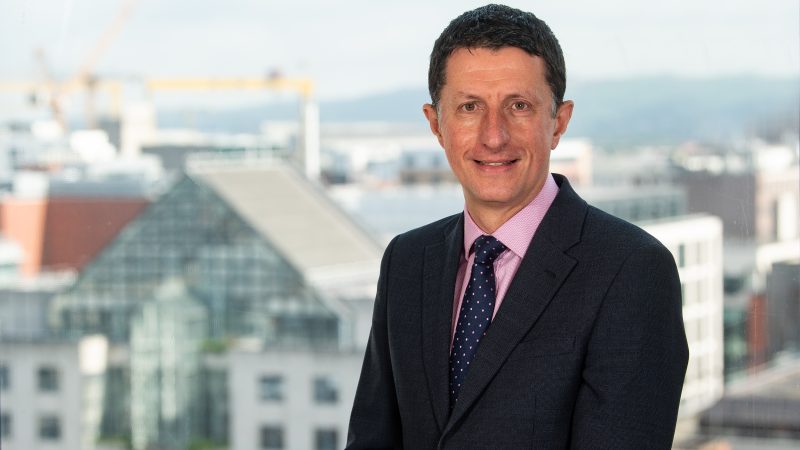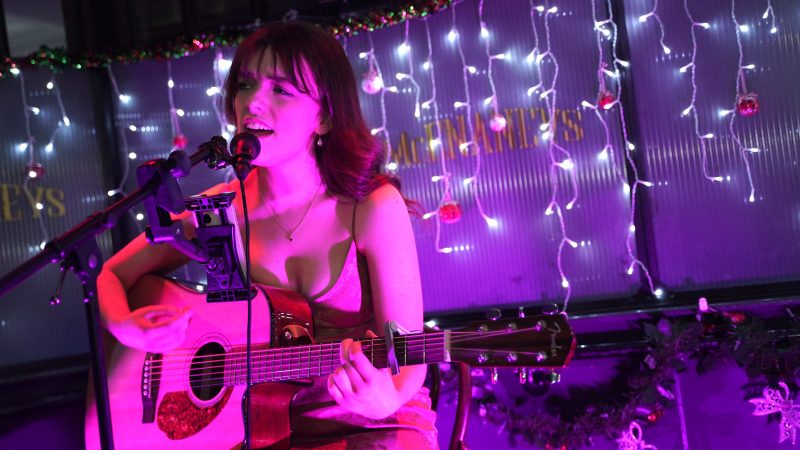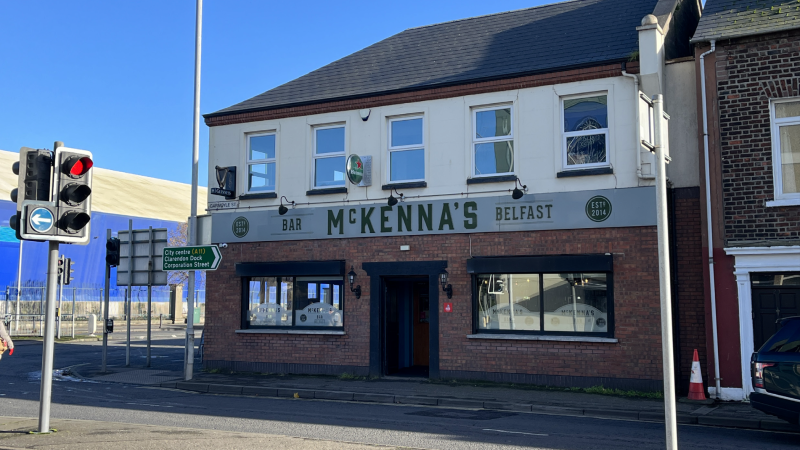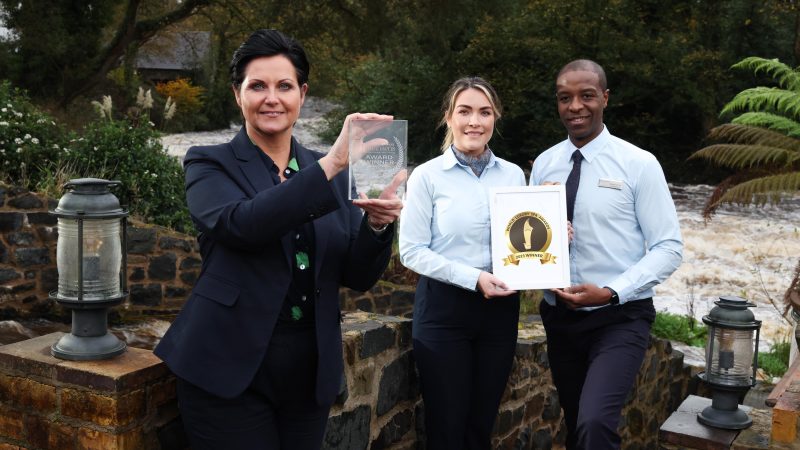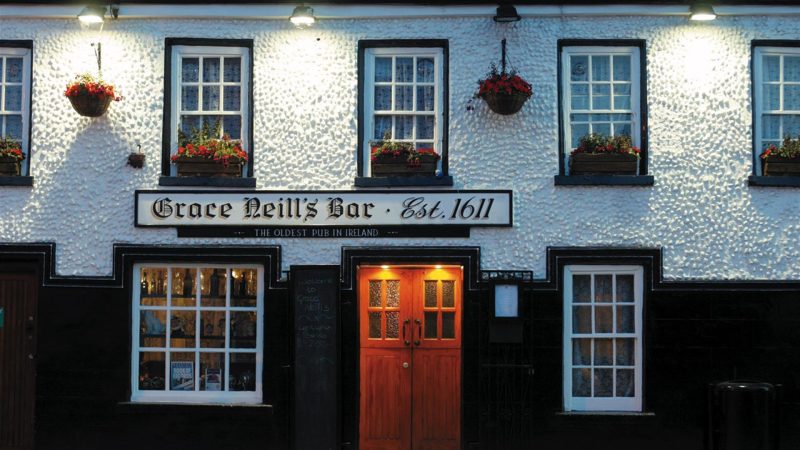Beef like no other

Russell Campbell has ventured to the heart of the Nine Glens to learn more about the origins of the remarkably successful Glenarm Shorthorn Beef – a much-favoured delicacy in some of London’s best restaurants and a top performer at the Great Taste Awards…
“I’ve been buying meat for 25 years and I have never tasted beef as exceptional as this…”
That’s how Andrew Cavanna, head of fresh food and hospitality at the prestigious Fortnum and Mason department store in Piccadilly describes Glenarm shorthorn beef.
The upmarket retailer has an exclusive contract for the multi-award-winning Ulster beef which comes from animals raised amid the splendour of the Nine Glens of Antrim on the Earl of Antrim’s ancestral land at Glenarm.
Speaking in April this year, Andrew Cavanna said that Fortnum and Mason’s meat business had quadrupled since it introduced the sought-after beef from Northern Ireland, all of which has been perfectly dry-aged by Hannan Meats of Craigavon in the world’s biggest Himalayan salt chamber.
The Glenarm shorthorns are the pride and joy of the Antrim estate’s manager, Adrian Morrow, but speaking to LCN recently, Adrian admitted that Glenarm’s commercial operations hadn’t always enjoyed the same level of enviable success that they do today.
Adrian grew up beside his father, Robert, who was land steward at the 1200-acre estate – ancestral home of the Earls of Antrim – for 46 years. After taking over the management role himself around 15 years ago, he said that he and farm manager, Brian Wilson, had begun to discuss the long-term sustainability of the business.
At that time, the estate was producing Charolais and Belgian Blue beef to EU specification and selling most of its produce into European markets – practically nothing was consumed at home. And the business itself was heavily dependent on farm subsidies from the EU:
“If these had been taken away at that time, we would have been in big trouble,” conceded Adrian. “We decided then that we needed to try and diversify our operations.
At first, the attention was on events. As well as opening Glenarm Castle to the public, upwards of £2m was spent to refurbish the land and gardens that surround the house. These days that space is used for a variety of revenue-producing events, including the very popular Dalriada Festival which runs for a week in the summer and features the popular Highland Games. It regularly attracts around 30,000 mid-week visitors to the tiny seaside village.
“We also tried to emulate some of the other big estates in Ireland and GB by introducing pheasant shooting for corporate customers from London and the United States,” added Adrian.
Those shoots usually involved dinner at the castle during which guests were served beef that had to be bought in. At that time, says Adrian, most of the estate’s own produce was still being sold into Europe and its taste was such that it wouldn’t have suited local palates. But when guests kept asking about the provenance of the beef they were eating, Adrian and Brian Wilson began to think that perhaps they needed to reconsider their strategy.
“We were getting good prices for the calves that we were selling, but even with that, the cows we were selling were costing us £170 per animal,” recalls Adrian. “We knew that wasn’t sustainable and we were relying on subsidies to keep us going.”
Partner
The pair visited a local farmer who let them taste beef from a variety of cattle, including Shorthorn, and Adrian says that it tasted “unbelievable”. He and Brian subsequently sold the Glenarm estate’s Charolais and Belgian Blue bulls and bought two Shorthorns to put with their cows.
The problem of what to do with the produce them arose and they briefly considered the possibility of opening a farm shop. They did visit one north Down farmer to see his operation, but concluded that if they were to go for that option themselves, they would have to spend too much time butchering and too little on the farm.
“Then we thought, let’s find a processing partner,” recalls Adrian. “On three different occasions, people mentioned Peter Hannan to us and so we rang him up. He was very busy at the time but he did agree to come and have a look and when he saw the cattle, he was completely blown away. He could see the potential and he told us that this was exactly what he was looking for.”
That first visit by Peter was five years ago and during the intervening years, a partnership has developed that has seen Glenarm Shorthorn Beef establish an enviable reputation for excellence at the highest level. Among those who have visited the 150-strong herd at Glenarm have been restaurateur Mark Hix and renowned food critic, David Constable, who subsequently told the Huffington Post:
“Glenarm Shorthorn Fillet – make a note of these three words, they’ll change your life…”
Economical
Demand for the beef produced at Glenarm has grown rapidly – the estate at Glenarm went from losing £170 per cow to making £700 on each animal it sold. As well as that, Adrian and Brian found that the Shorthorn breed itself was much more economically efficient than its predecessors had been – they calve much more easily, so vets bills are reduced, they eat less and they recover more quickly and so can calve again in a shorter time.
They also saw an opportunity for further diversification and these days, around 40 farmers are producing beef under the Glenarm label, using guidelines and protocols set down by Adrian and his staff.
The main market for the beef is in London and to a lesser degree, Paris. It is on the menu in restaurants and hotels and available through wholesalers as well in Fortnum and Mason and in Selfridges. It’s also available in a handful of restaurants in Belfast and at all the Hastings Hotel Group outlets.
And it isn’t just beef. In 2006, the estate took on an ailing salmon fishery in Red Bay and invested heavily in its badly exposed facilities. Despite a catastrophic jellyfish attack in 2007 that wreaked £2m-worth of damage, Glenarm Organic Salmon is now being supplied to customers across the UK and as far afield as the Far East, although it is no longer owned by the Glenarm estate.
Adrian says that looking back, making the move to the Shorthorns had been “a massive challenge”, but he adds:
“The industry has come a long way here in the last two or three years and many more traditional breeds are now being used. People are busy looking at alternatives, trying to look at anything that might make them more profitable or more efficient. But there’s still lots more to be done.
“Subsidies are still a crucial part of farming in Northern Ireland and if you took them away, the industry would collapse. But at the same time, there is demand for good-eating beef like this and there is probably room in the market for more people to think about this type of farming.”
Provenance has become a buzz-word, he says, following all the negative activity that has surrounded food sources in recent years. And innovation is also important:
“I think that within the next year or two, you’ll be able to go into any restaurant that serves Glenarm Beef, you can take out your mobile phone and you can scan a tag on the plate that will tell you where the animal was born and bred and show it to you on Google maps.
“The focus is definitely on future development. That’s important for us because we look at ourselves as a niche, special product. We think there is always room for development, we have about 300 sheep on the estate at the moment and we are looking at producing Glenarm Lamb within the next two years.”





